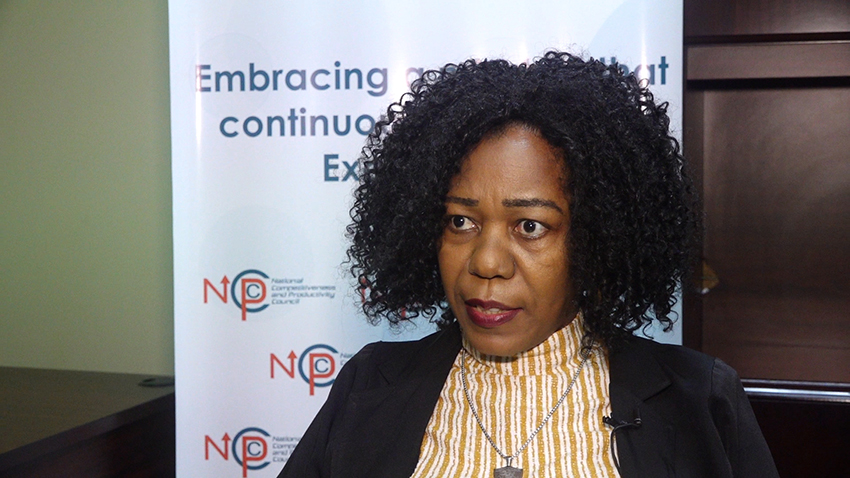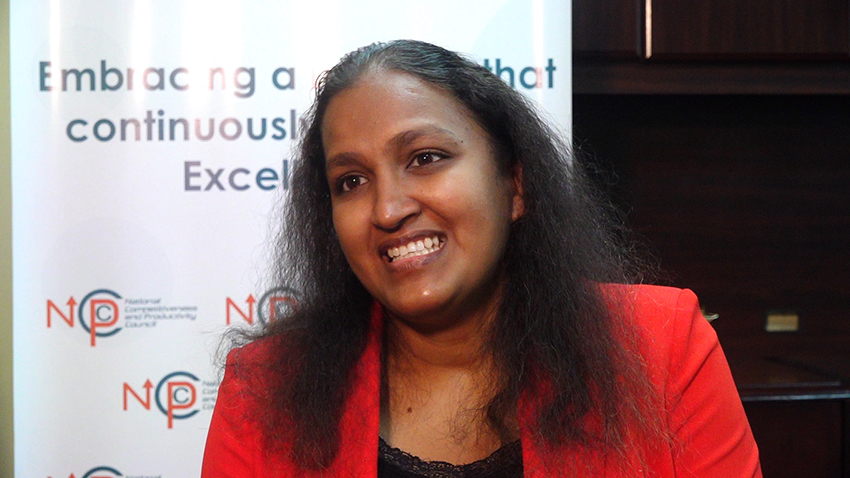Achieving economic diversification, competitiveness, as well as meeting sustainable development goals (SDGs) becomes even more relevant for small island developing states (SIDS) in this COVID-19 reality. Strengthening national Science, Technology, and Innovation (STI) capabilities would significantly contribute to Saint Lucia’s economic and societal development objectives as well as provide the boost needed to enhance Saint Lucia’s overall competitiveness and build resilience.
It is precisely for this reason the government has embarked on the development of an STI Policy for Saint Lucia.
Science, technology and innovation (STI) is being given increased attention in strengthening Saint Lucia’s competitiveness and economic diversification strategy. The application of new knowledge and ideas into productive economic activities can stimulate the country’s growth potential, generate added value and create new and well-paying jobs.

With funding support via the Inter-American Development Bank through Compete Caribbean Partnership Facility, the National Competitiveness and Productivity Council (NCPC) is spearheading the development of an STI Policy for Saint Lucia. Director of the NCPC, Fiona Hinkson explained that Saint Lucia is now taking steps towards the development of a tangible innovation policy as part of the National Competitiveness Agenda.
“The Science, Technology and Innovation Policy is very important. This is the first time we are having such a policy in Saint Lucia. It gives us the opportunity to bring together the science aspects, innovation and technology into one comprehensive framework. So, we are now better able to help our researchers, our innovators, our business persons to come up with business ideas and solutions to help solve the problems of society. Right now with the Science, Innovation and Technology Policy businesses will be able to come up with new ideas to help them to be more profitable and improve their processes. Researchers and innovators will be able to come up with new solutions that would support economic development, growth and competitiveness.” Hinkson noted.
The NCPC has partnered with the Division of Innovation, the Department of Sustainable Development and the Department of Public Sector Modernization in the formulation of the STI Policy. Science and Technology Officer, Berthia Thomas said this policy will function as the overarching framework to provide strategic direction to the Science and Technology Department.

“So the journey has been very long. As a matter of fact, the Science and Technology Section was initiated in 2013 and we have had many challenges along the way. So, we are very happy that we can now collaborate with the Innovation Division and specifically the National Competitiveness and Productivity Council, who has lead this process, in the development of a joint Science, Technology and Innovation Policy.” Thomas stated.
Innovation refers to creating something new; a big idea, which adds value to a product, good, service, or process. So said Lennel Malzaire, the Director of Innovation in the Department of Education, Innovation, and Gender Relations. She said the STI Policy would help establish an innovation vision and strategy for Saint Lucia and is aligned to the 2030 Sustainable Development Goals.
“We also see it creating a roadmap for the involvement of the various sectors and industries building clusters of networks for organisations, so that there is more communication and more sharing of information and knowledge. The know-how, the know-when, the know-why is important to enable persons to add that kind of value to whatever products or services or processes that they may be interested in bringing to the market. And, also, to build more entrepreneurs.” Malzaire Explained.
Policy Links, IfM Education and Consultancy Services, University of Cambridge, has been contracted to provide technical assistance for the implementation of the National Competitiveness Agenda for Saint Lucia and the STI Policy will be one of the deliverables from this project.





![Attendees at the UHC logo and website launch [Photo credit: GOSL]](https://thevoiceslu.com/wp-content/uploads/2026/02/Attendees-at-the-UHC-logo-and-website-launch-380x250.jpg)






![Remnants of an alleged drug boat blown up in a lethal strike by the U.S. military last week surfaced off Canouan on Saturday [Photo credit : St Vincent Times]](https://thevoiceslu.com/wp-content/uploads/2026/02/Remnants-of-an-alleged-drug-boat-blown-up-380x250.jpg)
